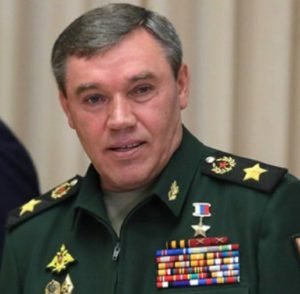Turkey has rejected the request of Linda Stuart Specht, the US consul in Adana to meet governors, district governors and mayors during her visits in different provinces of southeastern Turkey as Ankara’s diplomatic traffic has been instenisfied with Russia and Iran.
Speaking during a meeting with civil society organizations from Diyarbakır on Tuesday, Specht said: “We made a request to meet the government officials, yet they refused our demand to meet one more time. I am disappointed about not being able to meet officials whose opinions concerning this complicated situation in Southeast, including Diyarbakır, we care about.”
Previously, governors and local mayors of Gaziantep, Şanlıurfa and Diyarbakır provinces had not showed up for scheduled appointments with Specht in March. Specht, who is planning to meet organizations supporting refugees and representatives of political parties, said they cared about these meetings to understand Southeastern region better and to improve relations between Turkey and the US.

Amid tensions between the US and Turkey over terrorism support in Syria, Turkish Foreign Minister Mevlüt Çavuşoğlu has said the chief of the Russian army’s general staff, Valery Gerasimov is going to visit Turkey to discuss the situation in Syria’s Idlib region.
Maj. Gen. Mohammad Bagheri, the chief of staff of Iran’s armed forces, also arrived in Turkey on Tuesday together with a high-ranking political-military delegation upon an official invitation from Turkish Chief of General Staff Gen. Hulusi Akar.
The visits by top generals came at a time of rising tensions between Ankara and Washington over claims of support for terrorism in Syria.
The Turkish Foreign Ministry recently slammed remarks by Brett McGurk, the US special presidential envoy for the Global Coalition against ISIL (Islamic State in Iraq and the Levant) for claiming there was a link between Turkey and the presence of al-Qaeda-affiliated groups in Syria’s Idlib province, where Turkey and Russia agreed to deploy troops as part of a de-escalation agreement brokered by Russia in May.
Turkey is also accusing the US of sending truckloads of military equipment to the Syrian Kurdish Democratic Union Party (PYD) and People’s Protection Units (YPG), which Turkey claims is affiliated with the terrorist Kurdistan Workers’ Party (PKK).
Referring to the US support for YPG, Çavuşoğlu said: “Russia is more empathetic to Turkey’s stance towards YPG than US.”

While the US aid was announced to be for operations against ISIL in Raqqa, the pro-government media claimed that the supplies are for an operation against Syrian areas that were taken under control by the Turkish military and Free Syrian Army (FSA) fighters during Operation Euphrates Shield between August 2016 and March 2017.
Deputy Prime Minister and ruling Justice and Development Party (AKP) spokesperson Bekir Bozdağ said on Aug. 15 that Turkey is ready for all scenarios in Syria: “All troops are on the alert. We will not allow a fait accompli.”
Meanwhile, Maj. Gen. Mohammad Bagheri, the chief of staff of Iran’s armed forces, visited Turkey on Tuesday together with a high-ranking political-military delegation upon an official invitation from Turkish Chief of General Staff Gen. Hulusi Akar.
Fighting against terrorism, regional developments, bilateral relations in the defense industry and border cooperation are some of the topics that have been discussed during the three-day meetings. The Iranian commander, who is visiting Turkey for the first time, was planned to meet Turkey’s autocratic President Recep Tayyip Erdoğan and other Turkish senior officials during his stay. (SCF with turkishminute.com)















